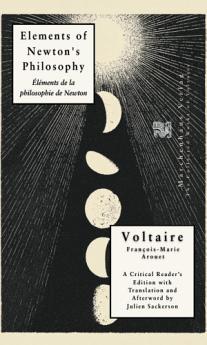Elements of Newton's Philosophy
Acerca de este libro electrónico
This modern Critical Reader’s Edition includes an illuminating afterword tracing Voltaire’s intellectual relationships with Enlightenment thinkers and philosophers (including Locke, Diderot, Rousseau and Newton), containing unique research into his influences and economic attachments, a comprehensive timeline of his life and works, a glossary of Enlightenment terminology, and a detailed index of all of Voltaire’s writings. This unique professional translation renders Voltaire’s sharp, satirical prose into modern language to preserve the original clarity and movement of the text. Combined with the scholarly amplifying material, this edition is a groundbreaking exploration of Voltaire’s classic works and his enduring artistic and philosophical influence, and influence on modern Protestant-Atheistic Theology.
Published by Étienne Ledet in Amsterdam (outside the jurisdiction of French censors) and dedicated to King Frederick the Great of Prussia, the Éléments achieved immediate success. Its full French title was Éléments de la philosophie de Newton, mis à la portée de tout le monde (“Elements of Newton’s Philosophy, Made Accessible to Everyone”). The book came out of Voltaire’s time in Cirey and Berlin (1736–37), when he conducted experiments with Du Châtelet and gathered instruments to test Newtonian optics. The 1738 edition was richly illustrated with engravings of prisms, telescopes, and other apparatus. Because it appeared well after the Lettres philosophiques, authorities tolerated it; in fact, it was lauded by many.
The scientific salon at Cirey and the Prussian court also helped spread its reputation. In subsequent decades it was translated into other languages. Above all, its appearance in the late 1730s signifies a turning point in Voltaire’s career: as one source notes, it “consacres, with the Lettres philosophiques of 1733, a turning point” from literary to scientific-philosophical writing. Voltaire himself later acknowledged Du Châtelet’s role (“Minerva dictated, and I wrote”), underscoring the collaborative effort behind this landmark text.











